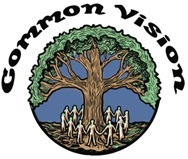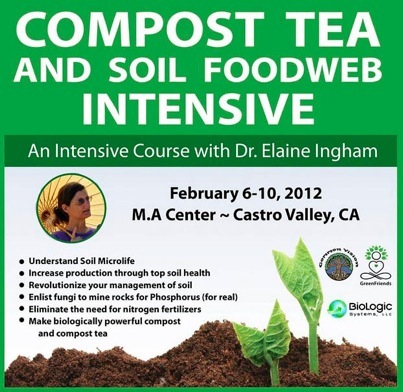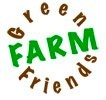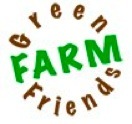








Home | About Us | Contact Us | Store

2008, Living Mandala
creative services by: 360 Degrees
UNDERSTAND SOIL MICROLIFE
INCREASE PRODUCTION THROUGH TOPSOIL HEALTH
REVOLUTIONIZE YOUR MANAGEMENT OF SOIL
ENLIST FUNGI TO MINE ROCKS (FOR REAL!)
ELIMINATE THE NEED FOR NITROGEN FERTILIZERS
MAKE BIOLOGICALLY POWERFUL COMPOST
LEARN THE SCIENCE & ART OF COMPOST TEA
TRANSFORM YOUR RELATIONSHIP TO SOIL
In Association With
Green Friends Farm
Common Vision
Biologic Systems LLC
Soil Food Web Inc.
Instructor
Dr. Elaine Ingham
Course Description
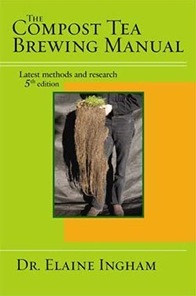
Healthy soil has all the interconnected elements of a “web” – which can retain nutrients, cycle nutrients into the right forms at the right rates for the plant desired, build soil structure, suppress disease-causing organisms, protect plant surfaces, produce plant-growth-promoting hormones and chemicals, and decompose toxic compounds. In this course, you’ll look at the elements of a healthy soil food web, learn how to analyze and improve your own soil, and learn how to make composts and extracts to strengthen the soil food web.
The course will cover the soil food web, soil food web analysis, composts and compost extracts, and the use of microscopes.
5-Day Soil Food Web Workshop with Dr. Elaine Ingham
The missing link in today’s comprehensive understanding of the soil and plant relationship is Dr. Elaine Ingham’s 5 day intensive workshop. When you leave you’ll have a full understanding of plant, soil, and microbe needs. Until recently, we have only understood the chemical aspect of plant relationships. Dr. Ingham connects the loop from chemical, biological, to available plant nutrients. In fact, the USDA’s Soil Biology Primer is headed by no other than Elaine herself.
Whether you’re growing in planters or backyards, understanding the Soil Food Web is a critical component to unlocking the yield barrier, allowing your gardens to thrive beautifully, while eliminating disease and pests.
Do you know the optimum bacteria: fungi ratio for YOUR plants? Every plant is different. In this class you will learn how to give your plants the biology they need to increase green growth, get more flowers and veggies, revitalize your farm, or restore open lands, while increasing moisture retention in the soil from 30-50%.
Find out how to make your own Liquid Compost Extract (LCE) and save hundreds of dollars on fertilizers, herbicides, and pesticides. Prevent Botrytis on seedlings, Powdery Mildew on roses, and other harmful diseases that reduce yield. Tailor your products to your plants with soil biology, See your garden or farm come to life!
Format & Modules
Participants can sign up for the entire course or specific modules as outlined below:
- Day 1 & 2 (Feb 6 & 7): Soil Food Web Fundamentals
- Day 3 (Feb 8): Compost Technology
- Day 4 (Feb 9): Compost Tea Technology
- Day 5: Light Microscope Training
Schedule
The course daily schedule is from 9:00 am - 5:30 pm.
Day 1 & 2: Soil Food Web Fundamentals – Dr. Elaine Ingham uncovers the basic principles of the Soil Foodweb, plant relationships, and bacterial to fungi ratios in this in-depth two day primer. Not only will you gain a fundamental understanding of the way soil biology drives plant nutrition, you will learn how modern agriculture selects for disease and pests. A must for anyone wanting a complete understanding of soil health and healthy plants.
Day 3: Compost Technology - Not all compost is created equal. There is a big difference between good compost and reduced waste. One of the biggest mistakes people make when building a compost pile is not selecting the different Carbon:Nitrogen ratios for the plants they’re growing. Learn how to select the proper ratios that will give your plants the exact biology they need to thrive.
Day 4: Compost Tea Technology – We cover the processes that will maximize biological diversity to get the most bang for your buck. Actively Aerated Compost Tea (AACT) and Liquid Compost Extract (LCE) are the most efficient methods for bringing back micobe diversity. This allows you to eliminate inorganic fertilizers and herbicides which decrease diversity and degrade soil health.
Day 5: Light Microscope Training – Dr. Elaine Ignham leads this very special day of training on effective light microscope techniques and identification. Learn from the master herself about what constituents good compost and compost tea on a microscopic level. This part of the class is essential for anyone who wishes to gain “eyes on” knowledge of the soil universe and what really goes on under our feet. Get the necessary training to identify the bacteria, fungi, protozoa, and nematodes that drive the health and well being of our plants. Students are encouraged to bring their own microscope. Microscopes will also be available for a group discount at the workshop.
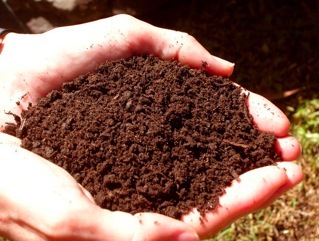
Who Should Attend?
This intensive course is for farmers, landscapers, ranchers, creators and distributors of agricultural products, waste management professionals, soil and garden enthusiasts of all types, and anyone who touches the earth. Simply put, this information needs to be central to any sustainable agriculture or land management.
About GreenFriends
GreenFriends is a global grassroots environmental movement that promotes environmental awareness and participation at the individual and community levels in activities aimed at preserving our precious environment. GreenFriends’ baseline philosophy is that we should strive to preserve and protect our environment because not only does nature provide us with resources we need to sustain ourselves, but she also sustains all life forms on earth. GreenFriends advocates that each one of us strives to reawaken our awareness of unity with all of creation, and cultivate an attitude of love and reverence towards nature. Developing love for nature will lead to a change in our attitudes, helping us work together towards restoring the harmony between humanity and nature that has existed throughout the ages. For More information visit: http://greenfriends.org
GreenFriends: A Global Environmental Movement
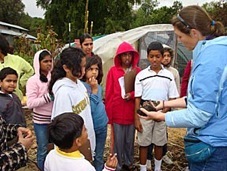
GreenFriends Projects
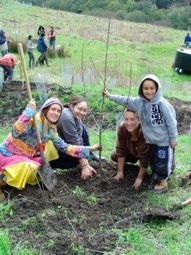
Soil Food Web Intensive
An Intensive Course With Dr. Elaine Ingham
February 6-10, 2012
MA Center, Castro Valley, CA
Tuition
Participants can register for the entire 5 Day Course or individual modules as outlines below:
- Day 1 & 2 (Feb 6 & 7): Soil Food Web Fundamentals ~ $270
- Day 3 (Feb 8): Compost Technology ~ $140
- Day 4 (Feb 9): Compost Tea Technology ~ $140
-
-Day 5: Light Microscope Training ~ $160
-
* Tuition includes organic lunch, snacks, & teas.
Class is suitable for beginners to advanced practitioners. Participants receive a certification of completion. This course will give you the tools you need to make healthy, site-specific compost for beautiful results every time!
Meals
A vegetarian lunch and 2 snacks will be prepared with love daily.
Refund Policy
Cancelations before January 30th will be given a full refund minus a $50 processing fee. No refunds are given in the week prior the class after January 30th.
Lodging & Transportation
Participants are responsible for booking their own hotel rooms and coordinating their own transportation to and from the M.A. Center. Hotel room costs in San Ramon or Castro Valley range from $40/night to $120/night. If you require assistance with finding lodging email us and we will send you a list of local hotels and online hotel booking options to assist your room search.
What is the Soil Food Web?
An incredible diversity of organisms make up the soil food web. They range in size from the tiniest one-celled bacteria, algae, fungi, and protozoa, to the more complex nematodes and micro-arthropods, to the visible earthworms, insects, small vertebrates, and plants.
As these organisms eat, grow, and move through the soil, they make it possible to have clean water, clean air, healthy plants, and moderated water flow.
There are many ways that the soil food web is an integral part of landscape processes. Soil organisms decompose organic compounds, including manure, plant residue, and pesticides, preventing them from entering water and becoming pollutants. They sequester nitrogen and other nutrients that might otherwise enter groundwater, and they fix nitrogen from the atmosphere, making it available to plants. Many organisms enhance soil aggregation and porosity, thus increasing infiltration and reducing runoff. Soil organisms prey on crop pests and are food for above-ground animals.
Text taken from the NRCS - U.S. Department of Agriculture Natural Resources Cnservation Services by Dr. Elaine R. Ingham
The Soil Food Web - Organisms and their Interaction
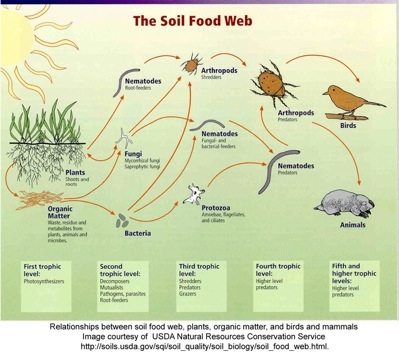
The illustration above describes the complex living system in the soil and how it interacts with the environment, plants, and animals. The soil food web is the community of organisms living all or part of their lives in the soil. A food web diagram shows a series of conversions (represented by arrows) of energy and nutrients as one organism eats another (see food web diagram).
All food webs are fueled by the primary producers: the plants, lichens, moss, photosynthetic bacteria, and algae that use the sun’s energy to fix carbon dioxide from the atmosphere. Most other soil organisms get energy and carbon by consuming the organic compounds found in plants, other organisms, and waste by-products. A few bacteria, called chemoautotrophs, get energy from nitrogen, sulfur, or iron compounds rather than carbon compounds or the sun. All plants – grass, trees, shrubs, agricultural crops – depend on the food web for their nutrition.
The Importance of the Soil Food Web
The living component of soil, the food web, is complex and has different compositions in different ecosystems. Management of croplands, rangelands, forestlands, and gardens benefits from and affects the food web. The next unit of the Soil Biology Primer, “The Food Web & Soil Health,” introduces the relationship of soil biology to agricultural productivity, biodiversity, carbon sequestration and to air and water quality. The remaining six units of the Soil Biology Primer describe the major groups of soil organisms: bacteria, fungi, protozoa, nematodes, arthropods, and earthworms. For more information about the diversity within each organism group, see the list of readings at the end of “The Food Web & Soil Health” unit.
Site Details - M.A. Center
The beautiful 180 acre grounds of the M.A. Center are becoming a demonstration & educational hub of leading permaculture, holistic management, and regenerative design practices.
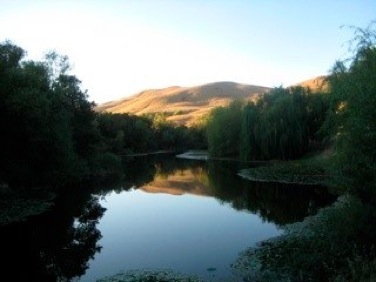
Site Projects Include
-
•1,000 tree holistic food forest
-
•Dynamic watershed restoration
-
•Broadacre land contouring & water infiltration
-
•Keyline patterning & ploughing
-
•Native reforestation & agroforestry
-
•Holistically managed grazing
-
•Soil food web management
-
•Solar energy
-
•Community garden & orchards
-
•Sustainability & spirituality programs
Keyline Plowing in the M.A Center Orchard
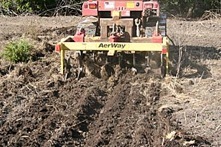
About Green Friends Farm
Located at the MA Center in Castro Valley - Green Friends Farm began as a challenge to plant a thousand fruit trees on the overgrazed land of a former cattle ranch west of Oakland, California. Now, half way to meeting that number, it has become an educational center for cutting edge agriculture, a destination for enjoying nature, and a vibrant spot for volunteers of all ages and backgrounds.
Contact
For questions and more information
e-mail: education@livingmandala.com or
call: 707-634-1461


Instructor
Dr. Elaine Ingham
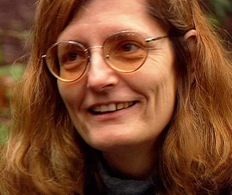
Dr. Ingham is President and Director of Research at Soil Foodweb Inc., a small business that grew out of her Oregon State University research program. Her research is on: What organisms are present in the soil and on the foliage of your plants, which organisms benefit which types of plants, which organisms harm plants, how can these organisms be managed to grow plants with the least expensive inputs into the system while maintaining soil fertility. Elaine started her academic career at St. Olaf College in Northfield, MN graduating in 1974 with a double major, cum laude, in Biology and Chemistry. Elaine earned her Master of Science in Microbiology in 1977 at Texas A & M University and her doctorate degree from Colorado State University in 1981. Elaine's doctorate is in Microbiology with an emphasis on soil. Elaine was offered Post-doctoral Fellowship, along with her husband Russ (who also has a doctorate from Colorado State University in Zoology, emphasizing nematology), at the Natural Resource Ecology Lab at Colorado State University. In 1985, Elaine accepted a Research Associate Fellowship at the University of Georgia.
Dr. Elaine Ingham is an energetic, easy-to-understand speaker who explains what life in the soil is all about. Behind this "user-friendly" approach lies a wealth of knowledge gained from years of intensive research into the organisms which make up the soil food web. Elaine not only understands the soil food web, she has knowledge on how to ensure a healthy food web to promote plant growth and reduce reliance on inorganic chemicals. While truly an academic, Elaine is also passionate about sharing her knowledge and research findings with those at the grass roots level of working with soils. That includes not just farmers who grow crops, but also those who graze cattle, sheep and other livestock, fruit and vegetable growers, greens keepers, parks and gardens workers, nursery operators - in fact anyone who grows things, even if it's just plain old lawn grass. Elaine offers a way forward for sustainable farming. A way of improving the soils we work with now and a way to keep soils in this healthier state without damaging any other eco-system. Attendance at Elaine's courses is always very high with a broad cross section of people taking advantage of her knowledge sharing. It is exciting that a speaker with such a depth of knowledge and dynamic presentation style, who is respected the world over as a leader in research of the soil food web is sharing this information with us.
Affiliated Organizations
Become a sponsor of this course!
For details email: affiliates@livingmandala.com




